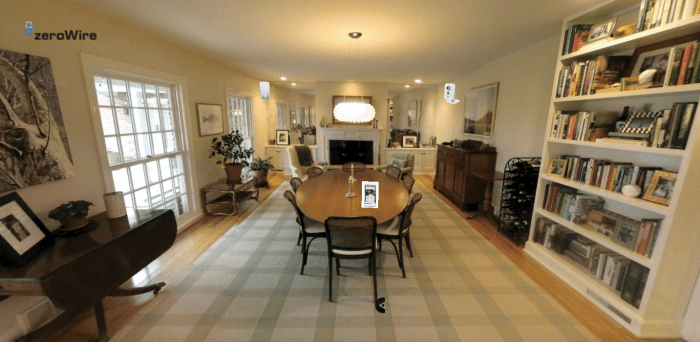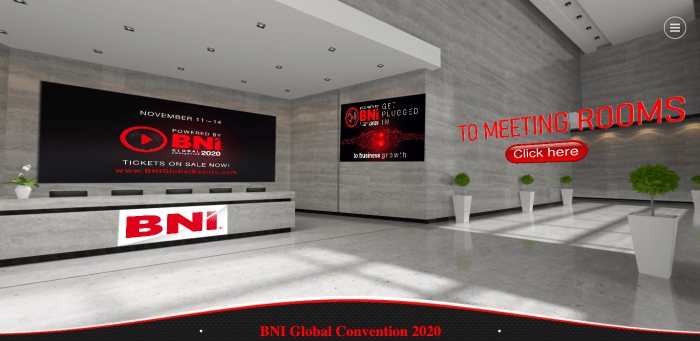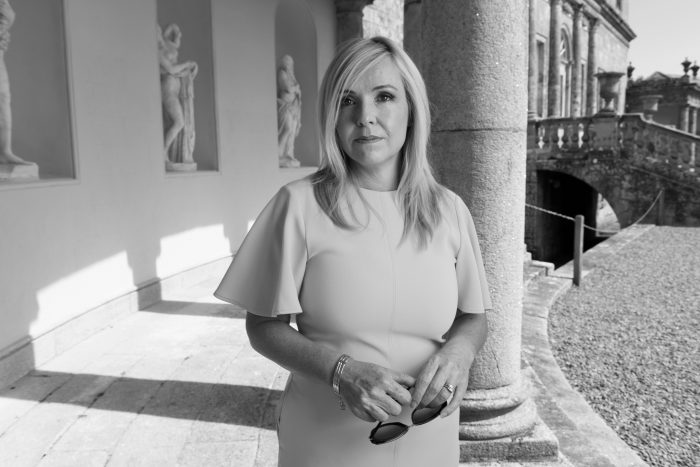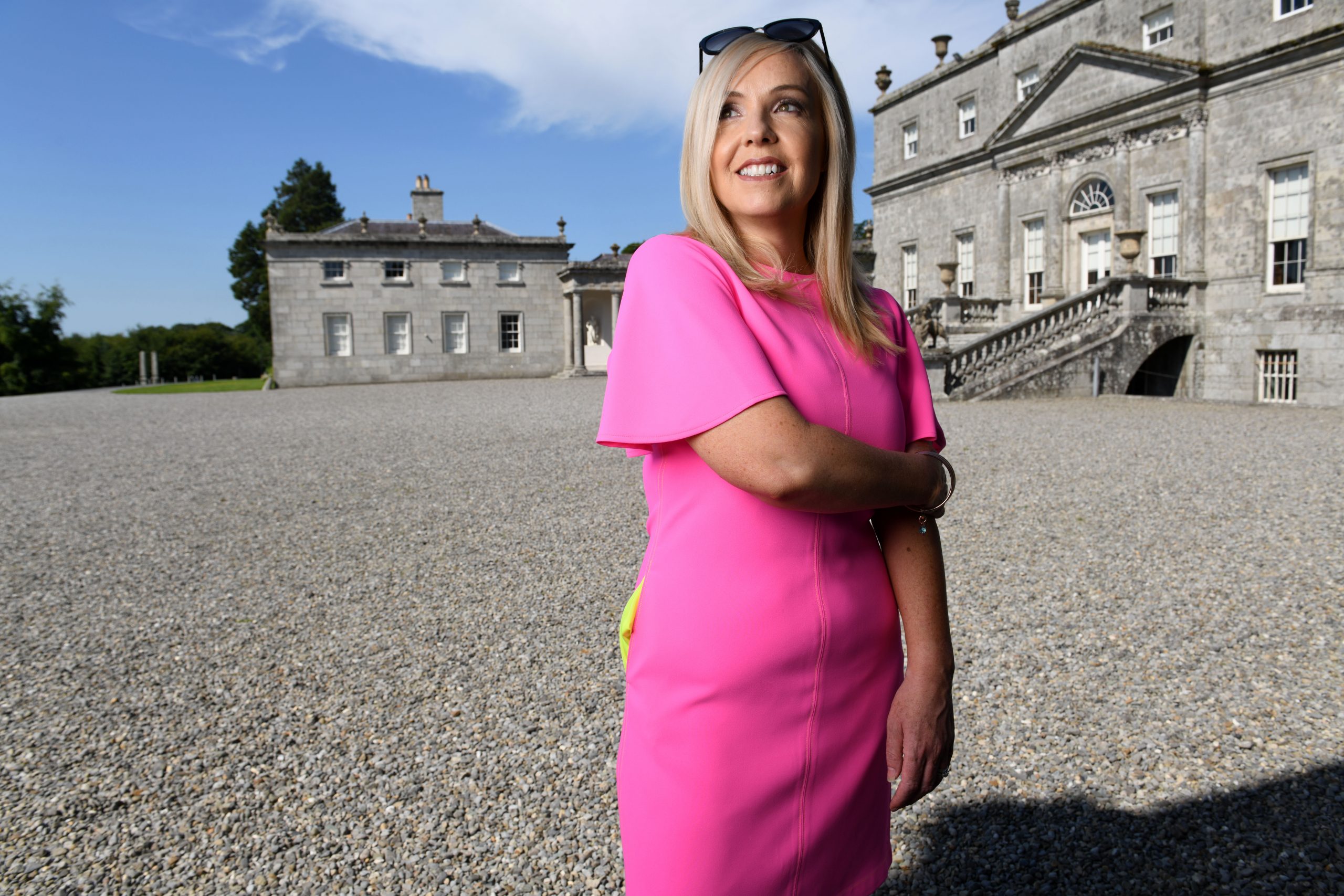Mother, juggler, magician. That’s how Orb Media co-founder Ciara Sheahan describes herself.
The journalist turned property manager turned RTÉ reality show star turned entrepreneur has a resume longer than most, but now, she feels she has finally found her calling.
In 2018, Sheahan co-founded Orb Media, a company that creates 360-degree interactive website experiences for businesses.
“It was like scratching an itch that you’ve had since childhood,” she said. “I’ve always felt that there was more to me than what I was doing, and when I finally got the chance to put that to the test, I ran with it.”
For Sheahan, the breakthrough was a long time coming.
For the majority of her career, she toiled away in the property sector, running a RE/Max real estate franchise that brought in a steady flow of cash, but not satisfaction.
Since setting up the franchise in 2006, Sheahan spent almost all of her free time not taken up by her two kids, pursuing her real passion: the media.
The Tallaght woman drifted between several freelance journalism gigs, writing about everything from music to wine. That was until 2016, when a realisation through her property company led her to found Orb Media.
When searching for ways to distinguish her real estate company from her competitors other than price drops, Sheahan stumbled across 360-degree imaging and immersive reality marketing technology that was being tested in real estate across the US and Australia.
The technology used 360-degree cameras to capture images of entire rooms with unprecedented detail, allowing real estate companies to show off their property to any person on any device worldwide, as if they were inside.

Sheahan implemented the technology into her business and, after witnessing its success, took it a step further.
That’s when she abandoned her life in property to found Orb Media alongside her longtime friend and coworker Ian Walsh, who also co-ran the RE/Max franchise with her for over a decade.
“If you want people to adopt technology, they have to be able to adopt it seamlessly and unknowing, and that’s what we did with our technology.”
Ciara Sheahan
Together, the two create immersive customer experiences using 360 technology for companies like Volvo, Vogue, HSBC, Jameson whiskey, and even the HSE.
“I could see the potential [the technology] had in telling a story, and I’m a storyteller at heart,” she said. “I said to myself, ‘I think this has legs, I think there is something in this,’ so we started testing, validating, and understanding the market, and what we saw was that there is a real palate for it.”
Given the disruptive nature of the technology, Sheahan knew she had to tread lightly at the early stage, and used the trend of virtual reality (VR) as a case study on what to avoid.
“The thing about VR, and why it never took off, is that it was asking consumers to change their behavioural habits,” she said. “If you want people to adopt technology, they have to be able to adopt it seamlessly and unknowingly, and that’s what we did with our technology. Putting on a VR headset is a lone social experience. We found a way to combine the VR experience and quality and cook it up in such a way that all consumers, globally, on all devices, could view it.”
Orb’s 360 experiences are designed around young consumers, with the goal of creating gamified e-commerce experiences. “We’ve developed the product in a way that you are always compelled to click on the next shiny link,” Sheahan said.

Orb recently field-tested some of its designs to a group of 14-year-old boys, who are, as Sheahan calls them,” the next generation of spenders”.
“We were trying to get at the question ‘how do you want to shop’, and what we got from it was ‘we don’t want to shop like mum shops, we want to shop like a game.’”
Orb’s designs are not all predicated on online shopping, though. In fact, Sheahan owes much of the company’s growing client base so far to its adaptability across virtually all markets and deliverables.
The company has worked with some heavy hitters in the finance industry, including HSBC, where they created a virtual interactive office tour, allowing potential employees and clients insight into the firm’s inner workings.
Orb also created an interactive webpage for the business networking company BNI, which guides the viewer through a virtual office serving as a marketing tool to explain the company’s capabilities while keeping the user engaged.

The company’s main area of growth, though, is in online retail and e-commerce, which Sheahan says has seen a major boost during the pandemic.
“People we speak to are always a bit nervous about our product, there is still a lot of reliance on old-school retail, but Covid has forced that to recede,” she said. “Companies have realised that they need to compete with Gen Z and sell to Gen Z, which they can’t unless they have serious traction online and in our space.”
Orb Media’s ability to adapt across platforms, uses, and industries is what has allowed it to bootstrap all the way from an idea to Ireland’s only interactive virtual experience business.
A feat, Sheahan says, would not have been possible were it not for her career of miscellaneous professional ventures that yielded a tremendous collection of experience and contacts.
From freelance to fortune
After falling just short of enough points to go to her dream school, Rathmines College, Sheahan instead elected to pack up and head overseas to the University of Sheffield in England to study journalism.
“My Dad twisted my arm to come back to Ireland, he said things were amazing here and that I’d be sure to get a job,” Sheahan said. She ended up reluctantly agreeing, a mistake, she said, as she ended up entirely outside of her industry, just trying to pay the bills.
“I ended up working in sales for Xerox,” she said. “I found out I was really good at sales and communication, but it never fulfilled me, and I fell into lukewarm water.”
Still looking to get her passion for media out of her system, Sheahan started pitching stories to local publications and ended up with a wine column in the Tallaght Echo.
“It was the best I could do at the time, but it did the trick,” she said.
“I actually found myself in property by mistake almost, I moved from Xerox into RE/Max Ireland as a marketing manager because my skills were still in communication and sales, and I realised that property wasn’t just about bricks and mortar, it was about people.”
Sheahan found a steady balance in her life between freelance publishing and her property job until she was unexpectedly fired one day short of her one-year anniversary at RE/Max.
“The managing director gave his best friend my job. They waited until I was there one day short of a year so I wouldn’t have any rights as an employee.”
Sheahan took the company to labour court and eventually settled, leaving her with some liquid capital and an itch to start something new.
“I had a few bob, and I knew Ian Walsh, who I’d worked with since 1998, was looking into buying a RE/Max franchise.”
“He knew about the nuts and bolts of property and the housing market, and I knew that property is about communication, the team, and helping people, so we decided that after my misadventure with RE/Max that I would come aboard his franchise with him.”
Around the time the two were looking to move on from property and run with their 360 idea, Sheahan took part in DCU’s Ryan Academy for Female High Fliers, which she says was an inexplicably momentous experience for her career.
“It was really transformative, it made me understand that no matter what I thought about business and how much I was around it, I still had so much to learn. We talked about how, as a business owner, you have to validate revenue, understand the legalities of your industry, and all these things you don’t think of when you work for someone else. That really was a key programme, I came out of that with a fresh set of eyes, and it motivated me to start the company.”
Now, Sheahan could not distance herself more from her old life in real estate.
“Property is like a leg I’m trying to amputate, but I can’t,” she said.
It doesn’t help either that in 2018, she took part in the RTÉ real estate reality show This Crowded House as a property consultant, appearing on the show several times to present homes to buyers.
“People recognise me from that show and ask me questions about property, when really I just want to get out of that space,” she said.
Despite her attempted estrangement from her former career, Sheahan said she still carries some of the lessons she learned from her time on the show into her new business.
“This Crowded House was about helping people to move on in their property journey. Our mission was ‘how can I help you to find out what’s right.’ That’s what I care about, and that’s what I try to bring to the table every day. How can I help a business find what’s right for them,” she said.

Even after Orb Media launched, though, the growing process was not easy, due largely to Sheahan’s struggle to win investments.
“We pitched to a VC company, and they said to me, ‘eh, VR never took off, Facebook got the Oculus in 2016, and where has that gone?’ And I thought, if your level of industry knowledge about virtual interactive platforms is that stale, that dated, that out of touch, then we are not interested in partnering with you. We needed an investor who understands the technology and understands the space for innovation, and they didn’t have it. We didn’t fit into their MedTech, EdTech, FinTech box.”
An investment finally came through from Enterprise Ireland in 2020 for €50,000, but only after several pitch attempts, she added.
As far as what the future holds for the company, Sheahan is keeping tight lips, but said they have a number of clients on the horizon that she is excited about. The company is in the works of projects with high-end French and Italian luxury fashion brands, and their most significant project to date, a partnership with an undisclosed publishing house, will be announced soon.
Orb is also looking to expand in size. Just a three-person team right now, Sheahan plans to hire two more staff next year, a data specialist and a software developer.
With eyes on expanding the company, Sheahan also spoke to the unique challenges she still faces as a female entrepreneur.
“The female entrepreneur experience here in Ireland is littered with the reluctance to respect because you’re a woman,” she said. “There is a lot of ‘that will never work, but you’re a lovely girl.’ But we have to keep going, we have to trailblaze the way. I have had more rejections than an X-Factor wannabe, but I stuck through it and look where I ended up, not too bad.”


